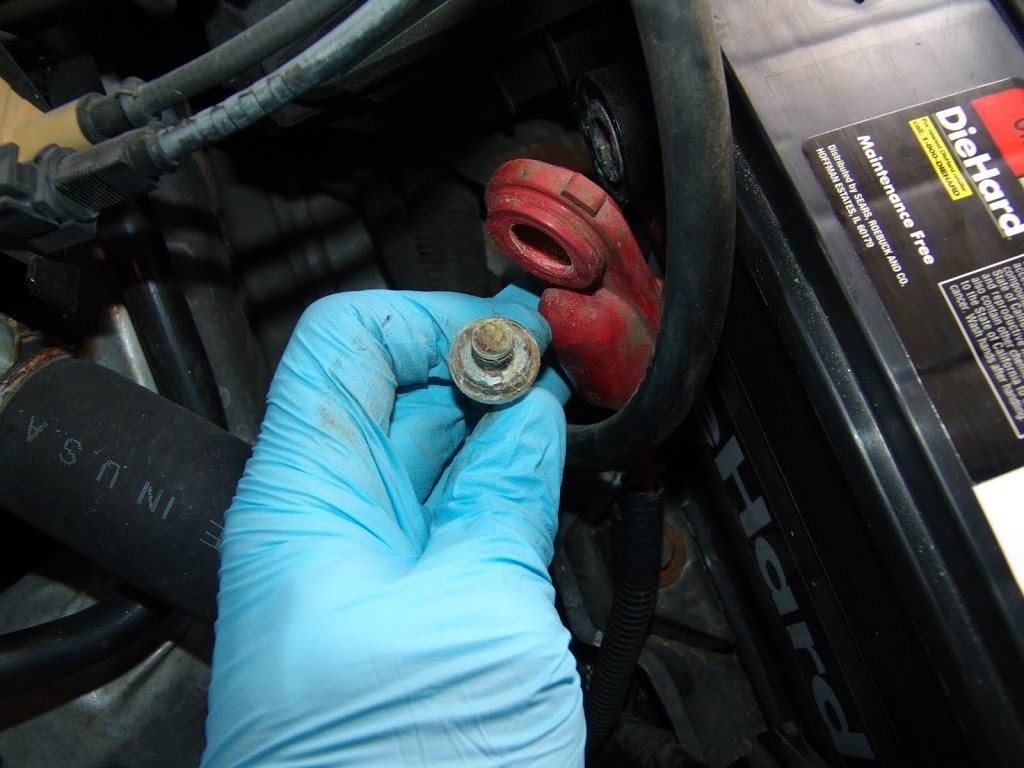I have a 1994 GMC safari van, when the cars on the voltmeter fluctuates between 13 an 18ish, and I hear a rhythmic wirrring sound that matches the movement of the needle and of course the pulsing lights. This happens if either everything is on or everything is off (lights, heater, stereo) but after driving for a while the meter sits calmly at 14 volts. I got the alternator bench tested 8 times at auto zone, passed everytime. Is there something else that’s perhaps disrupting the speed of the belt, creating the wirrring sound, and since the belt is changing speed, changes the alternator output?
I believe its the voltage regulator inside the alternator. I had the same thing with flickering lights and the alternator tested fine. I replaced it anyway even though it was under warranty and the problem went away.
Was the battery tested? I have seen batteries cause that problem and in a day or two they were dead.
Have the positive side mount battery terminal inspected for corrosion.
If there’s a poor connection where it causes a voltage drop, the voltage regulator thinks the battery is low on voltage. So it goes to wide open recharge to try to bring the battery back.
Tester
That wasn’t the proper way to do it, in my opinion
You’re supposed to test the charging system, not just the alternator
The only way to do that is to drive the whole car to a shop, and have them perform a charging system test.
If you only plop the alternator on the bench, the guy can’t even see the rest of the car. All he can say is “The alternator tests good right now.”
I wonder how many batteries, alternators and starters have been needlessly replaced due to corroded terminals and cables @Tester? And do the McParts stores inspect and clean cables when they test batteries, etc.?
Another idea beyond the good ideas above (start with cleaning the battery connections), suggest to hook up a DVM (portable volt meter) to the battery terminals and see if it matches what the car’s own volt meter is saying. 18 volt charging is probably overly high compared to the charging system spec, and that could damage the battery. But it might not show up on an alternator bench test, only when the alternator is installed and you are driving the car.
Not probably
It’s definitely too high . . . no doubt about it
For $10 from amazon you can get a voltmeter that plugs into the accessory socket (aka the cig. lighter socket)
They said they test the regulator on the bench aswell.
I put my multimeter on it while running, it jumps between 16 and 14, so the 18 and 13 I mentioned before is probably just from the needle bouncing around so much it becomes inaccurate. But it’s still fluctuating quickly.
Will do, any suggested chemicals to help clean up acid? Or whatever that stuff is
It’s a new battery. (According to the previous owner)
1 can they pinpoint exactly where the corrosion is?
2 any idea on the price, even just ballpark?
3 is that easy to do yourself?
Thanks for the reply!
The corrosion can be seen . . . a good visual inspection is needed
You can even clean it yourself
But I’m skeptical, if that’s even your problem
That’s good news it isn’t reaching 18 volts. The alternator voltage (as measured at the battery) bouncing around when the engine is running is normal, but bouncing rapidly between 14 and 16 volts? That seems excessive from what I’ve observed. Either you got a faulty alternator or there’s a problem in the wiring between the alternator and the battery. Look for corroded/loose battery and alternator terminals and grounds. On a 94, it wouldn’t be unusual to need to remove the main battery to chassis and engine to chassis ground connections and make them clean and rust free. Copper, iron and steel conduct electricity well, but rust doesn’t. The vibrations from the motor may be jiggling a connection enough to cause the voltage to bounce around.
Baking soda and water. Last time I needed to clean battery terminals was my old beat up Town & Country minivan. I disconnected the battery, poured some of the solution over the top, then used a brush designed to clean battery terminal posts (couple bucks at an autoparts store). Once everything was dry, I put a thin coating of dielectric grease on the posts, reconnected them, and drove on.
Just a note here hoping to prevent DIYers from turning battery maintenance into a big problem. When reattaching the cable it is only necessary to tighten the connection until the cable end is no longer free to twist. If you move the cable end from side to side as you tighten the bolt as soon as the cable becomes firmly seated stop tightening. That one last twist that so many people feel compelled to take can strip threads.

